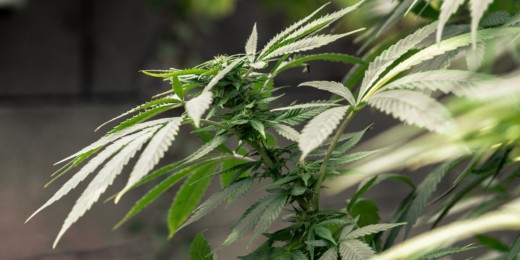States that legalize recreational marijuana use, and in some cases allow retail sales of the drug, may see more suicide attempts and other self-harm among younger men, a new Stanford Medicine study suggests.
Researchers examined whether rates of self harm injuries -- which include suicide attempts and non-suicidal behaviors like cutting -- correlate with changing marijuana laws and found an increase among men younger than 40 in states that allow recreational use. The study indicated no such correlation with states that allow only medical marijuana use.
"States that legalize, but still constrain commercialization, may be better positioned to protect populations from unintended harms," said Keith Humphreys, PhD, professor of psychiatry and behavioral sciences. Humphreys is the senior author of the study published March 18 in JAMA Network Open. Ellicott Matthay, PhD, a post doctoral scholar at UC-San Francisco, is lead author.
Humphreys, who worked as senior policy adviser for the White House Office of National Drug Control Policy from 2009-2010 under the Obama administration, said that there is little research available on the health effects of the legalization of the recreational use of marijuana.
In certain states, including California, he said, this allows the opening of for-profit dispensaries that sell unregulated varieties of strains and dosages of the drug. The study showed that in states that legalized recreational marijuana use and have robust retail operations, there was an associated 46% increase in self-harm injuries among 21- to 39-year-old men.
"Some states permit only small amounts of homegrown cannabis plants for medical use," the study reads. "Others have extensive commercialization, permitting multi-billion dollar, competitive retail markets based on systems of dispensaries offering diverse, high-potency products to anyone aged 21 years or older."
Regular and heavy use of increasingly high potency cannabis products have been linked to risk factors for self-harm and assault injury, the study said, including impaired cognitive function, associated alcohol use, psychosis, depressive disorders, and suicidal ideation and attempts.
"The medical cannabis laws showed no adverse effect on self-harm or assault in the study," Humphreys said. "But as you move into the more recreational, commercial uses, some results were worrying."
The effects of laws on health
The findings were based on analyses of health insurance claims made between 2003 and 2017 for more than 75 million Americans. Researchers used the claims as a marker for self-harm and assault over a 17-month period, comparing rates against the varying and changing marijuana laws.
Most U.S. states have legalized medical marijuana use, while 15 states and Washington, D.C., also allow recreational use. (During the study period, 29 states permitted the use of medical cannabis and 11 states permitted recreational use.)
A significant increase was found in self-harm among men younger than 40 in states with recreational policies but not for assault, the study said. For recreational dispensaries without dose-related restrictions, self-harm was shown to be slightly higher.
Interestingly, for men 21 years old and younger, rates of self-harm were significantly higher -- 46% -- in states with recreational marijuana laws that permitted dispensaries and lacked dose-related restrictions, despite laws restricting use by minors.
"This is particularly disturbing because the human brain is much more plastic in adolescence," Humphreys said. "Heavy use during adolescent years may do significant damage."
Profit versus public good
The study points out that, because implementation of state laws concerning marijuana use vary significantly, it's important to examine health effects on a state-by-state basis in the future.
The study further pointed to earlier research showing that rates of marijuana use and poison control center calls for marijuana exposures have increased when states permit retail sales of the drug through dispensaries.
The study does not prove there is a cause-and-effect between self-harm and marijuana use, but suggests that further research to sort out the differences between varying policies will be important for public health, Humphreys said.
"The thing about cannabis is that, culturally, a lot of people believe it can only do good," Humphreys said. "But it is addictive like alcohol and it can affect people's well-being and health negatively."
He recommends that states, particularly those that allow dispensaries, build a good regulatory framework as they move into more recreational use.
"Any industry pursues profit," Humphreys said, adding that no states regulate dosage levels of retail sales for marijuana. "There's a big difference between selling a weak beer versus vodka. We need regulations to alleviate tensions between profit and public good."
Image by cendeced






